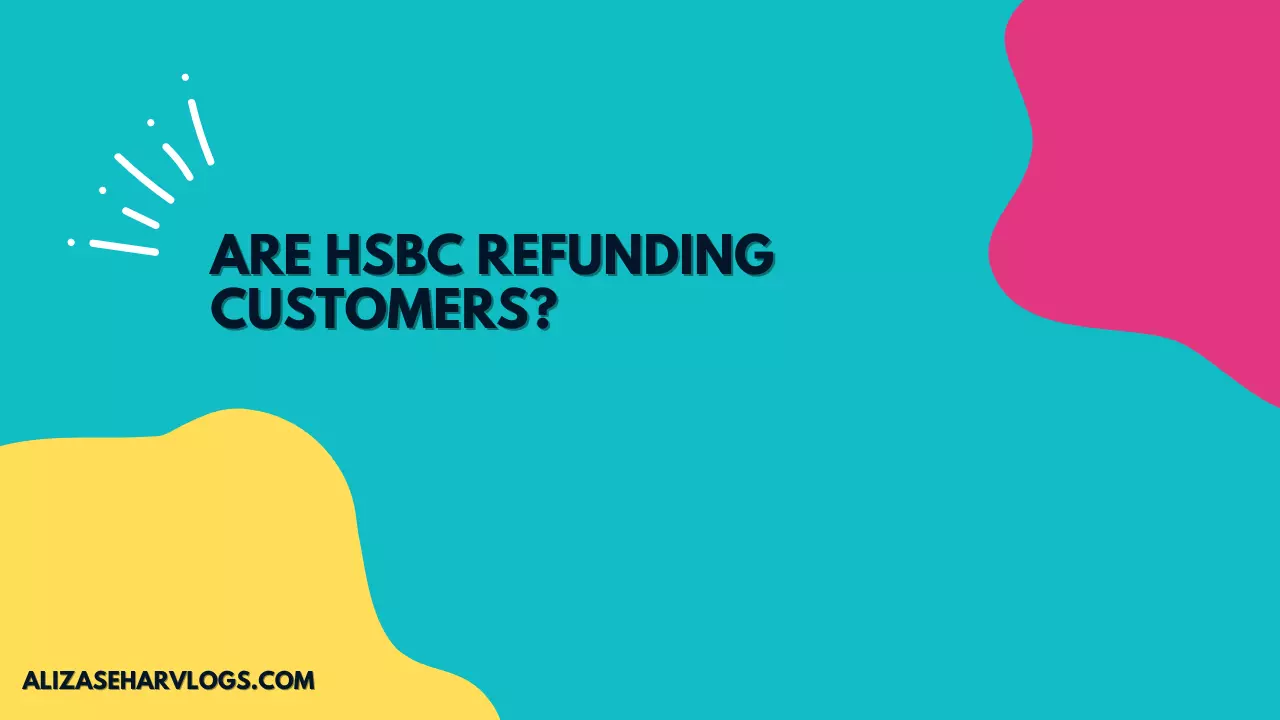HSBC Refunding, one of the largest banking and financial services organizations in the world, has recently been in the news regarding potential refunds to customers. There have been reports that HSBC may be refunding some customers who were overcharged or incorrectly charged for certain products and services. However, the details surrounding these potential refunds remain unclear.
We will examine the reports about HSBC refunds, analyze what is known so far about which customers may be eligible and the reasons for the refunds, look at statements from HSBC, and consider the implications if refunds are indeed issued. Though HSBC has not officially confirmed or provided full details on refunds, this is an important issue for its millions of customers worldwide.
Reasons HSBC May Issue Refunds
There are several common reasons why HSBC may refund money to a customer:
- Overdraft fees: HSBC may agree to refund overdraft fees if it is determined the customer should not have been charged those fees in the first place due to an error or unreasonable policy application by the bank.
- Incorrect fees or interest: If HSBC incorrectly calculates an account fee or applies the wrong interest rate, the discrepancy could warrant a refund.
- Fraudulent activity: Customers are not liable for fraudulent activity that occurs on their HSBC accounts. If money is stolen through fraudulent means, HSBC will refund those unauthorized transactions.
- Bank errors: Any monetary mistakes made by HSBC, such as duplicating a charge, misplacing funds, or processing a transaction incorrectly, would typically result in a refund.
- Poor customer service: Sometimes refunds are issued when a customer complains about extremely poor service from HSBC that resulted in financial harm.
The Refund Request Process
To initiate a refund request from HSBC Bank, customers should take these steps:
- Contact HSBC customer service by phone or submit the request in writing through mail or email. Provide details on why the refund is deserved.
- If contacting HSBC does not resolve the issue, submit an official complaint form through HSBC’s formal complaint resolution process.
- Gather documents that show the charges and account history in question. Account statements, letters from HSBC, and written communication with the bank help prove the justification for a refund.
- For large refund requests or those denied by HSBC, additional complaints can be filed with banking regulators, who can apply pressure on the bank to correct the issues.
- If HSBC definitively refuses a legitimate refund request, consulting with legal counsel may be the next step to compel the bank to return unfair or fraudulent charges through regulatory or court action.
Key Tips for Getting HSBC Refunds
Customers have a better chance of getting refunds from HSBC by following these suggestions:
- Promptly report any questionable charges or issues requiring a refund to HSBC. Delayed reporting gives the bank an excuse to deny refunds.
- Keep meticulous notes anytime you communicate with HSBC reps regarding a refund. Get names, employee IDs, and request written confirmation.
- Remain persistent and escalate to higher levels of management if needed. Politely but firmly push your case until there is a fair resolution.
- Highlight relevant bank policies and regulations that support your right to a refund. Banks must follow rules for correcting errors.
- Seek assistance from regulatory agencies like the Consumer Financial Protection Bureau if the bank refuses to issue the refund you deserve.
Conclusion:
HSBC does issue refunds to customers in a variety of situations where the bank has incorrectly charged fees or made errors. By providing documentation, following HSBC’s formal complaint process, and persisting with your claim, you may be able to successfully get improper charges refunded. Consider legal options if HSBC ultimately refuses a refund request that has merit. With patience and diligence, you can recover unfair or fraudulent losses.
FAQs:
How long does it take to get a refund from HSBC?
HSBC typically processes refunds within 30–90 days after approving a request. Complex cases may take longer to investigate. Follow up if it has been over 90 days with no refund issued.
What documentation does HSBC need for a refund?
HSBC requires documents like account statements, letters sent by the bank, notes from conversations with HSBC representatives, and any other evidence that can back up your refund request.
Can HSBC deny a refund request?
Yes, HSBC may deny a refund after reviewing your claim if they determine the charges or fees were properly assessed. You can appeal a denied refund request and provide additional evidence.
When should I get a lawyer for an HSBC refund?
If you’ve exhausted all options communicating with HSBC and regulators to get a refund you deserve, then consulting a lawyer about potential legal action is the next step to recover your money.
Does HSBC issue refunds for unauthorized transactions?
Yes, if you report unauthorized, fraudulent, or incorrect charges on your HSBC account, the bank’s policy is to investigate the transactions and refund any amounts that were improperly charged.
